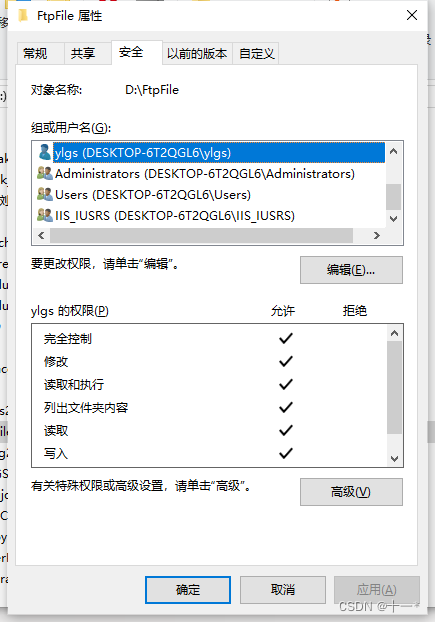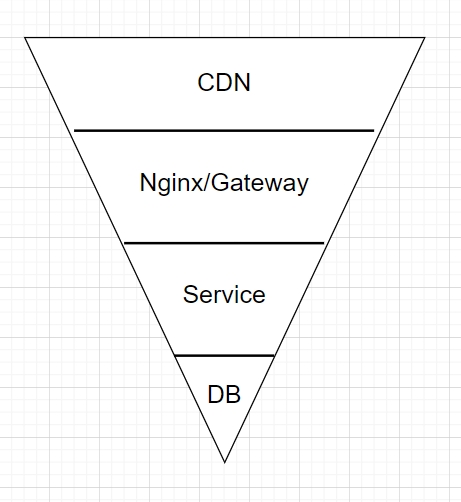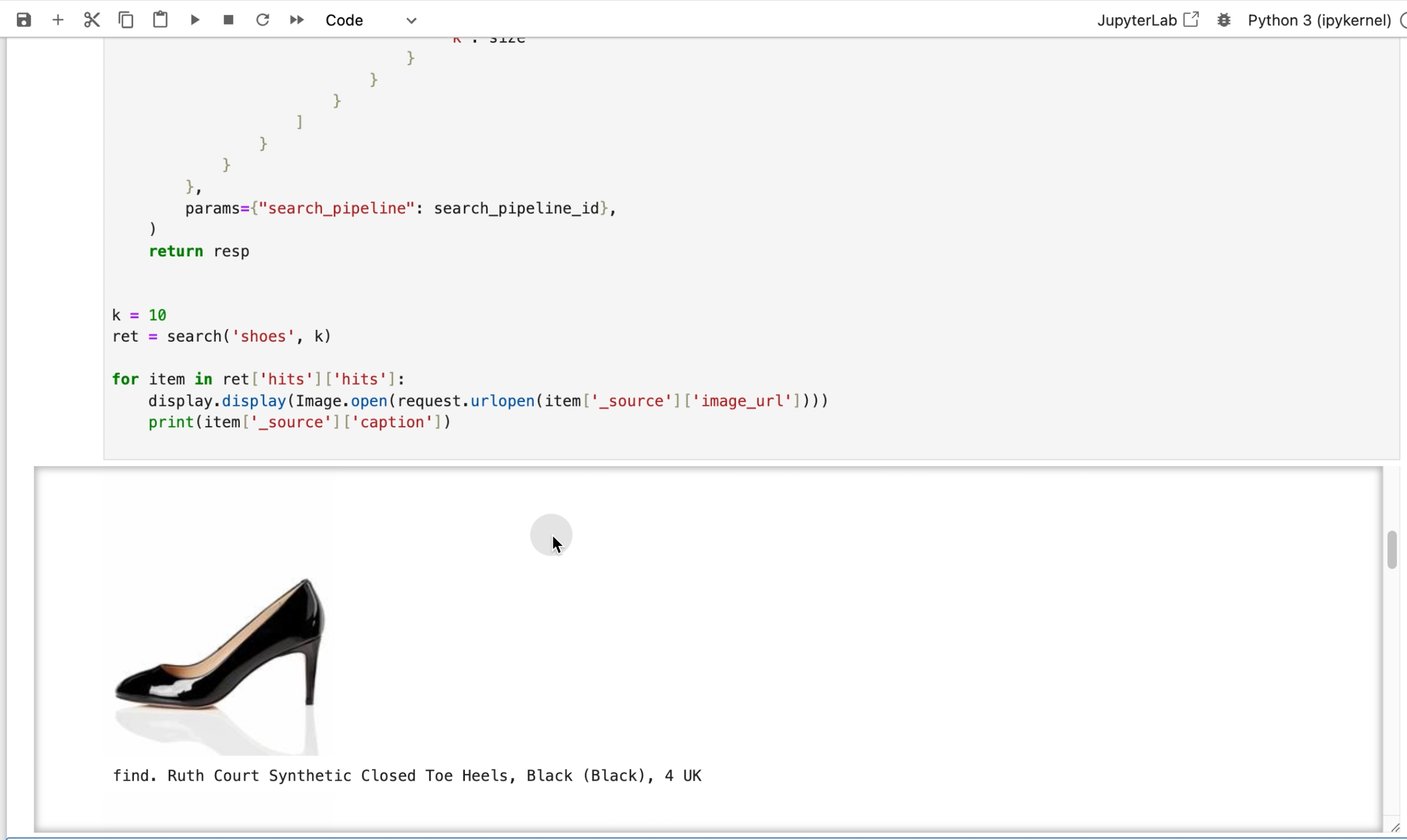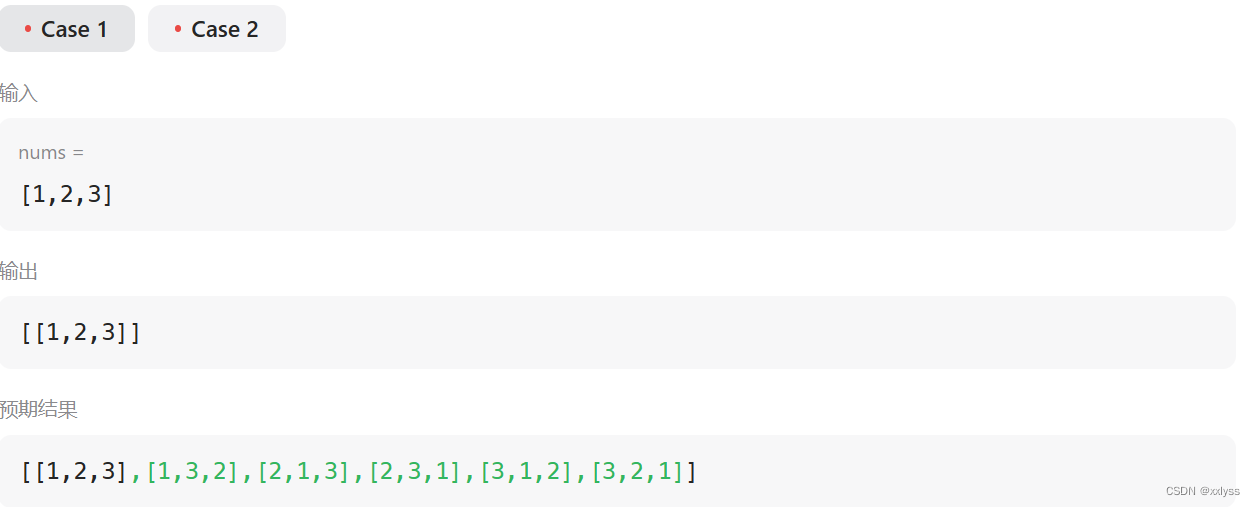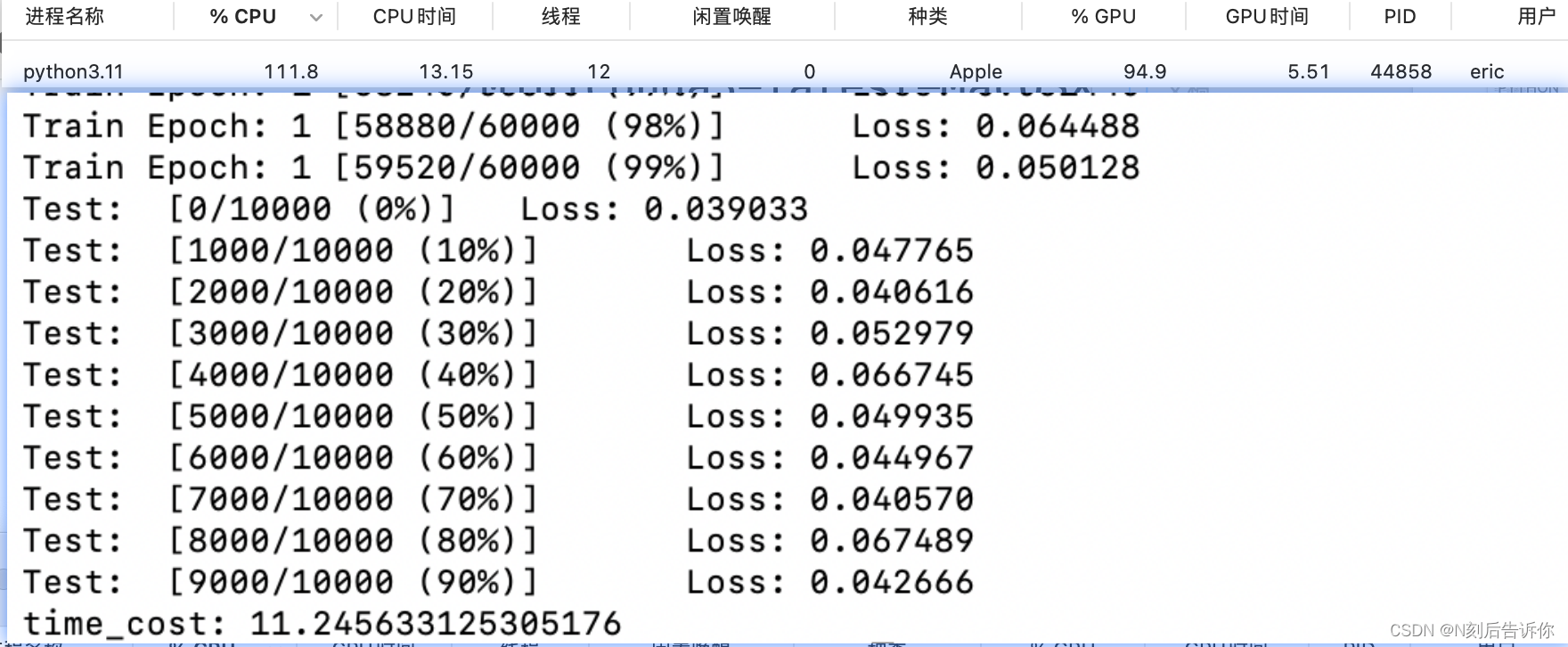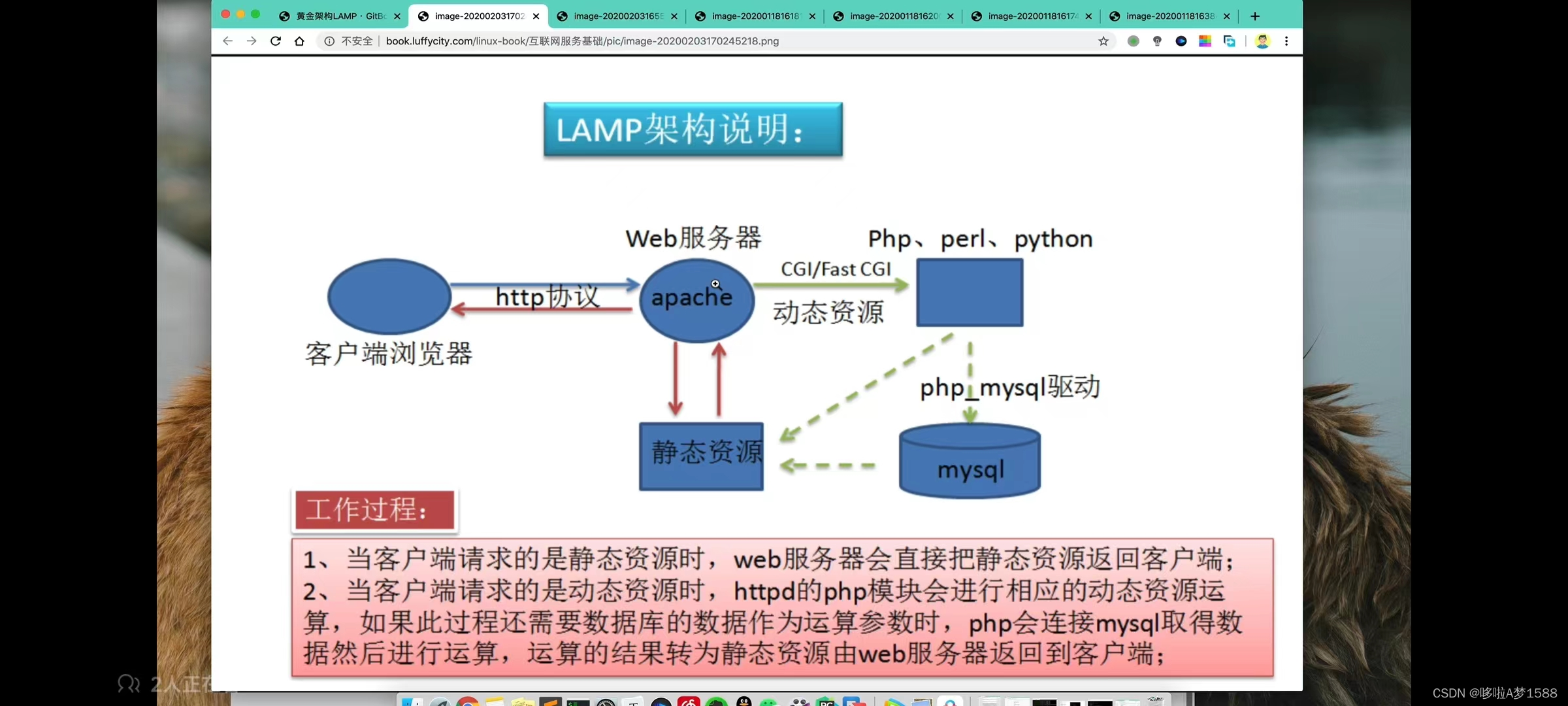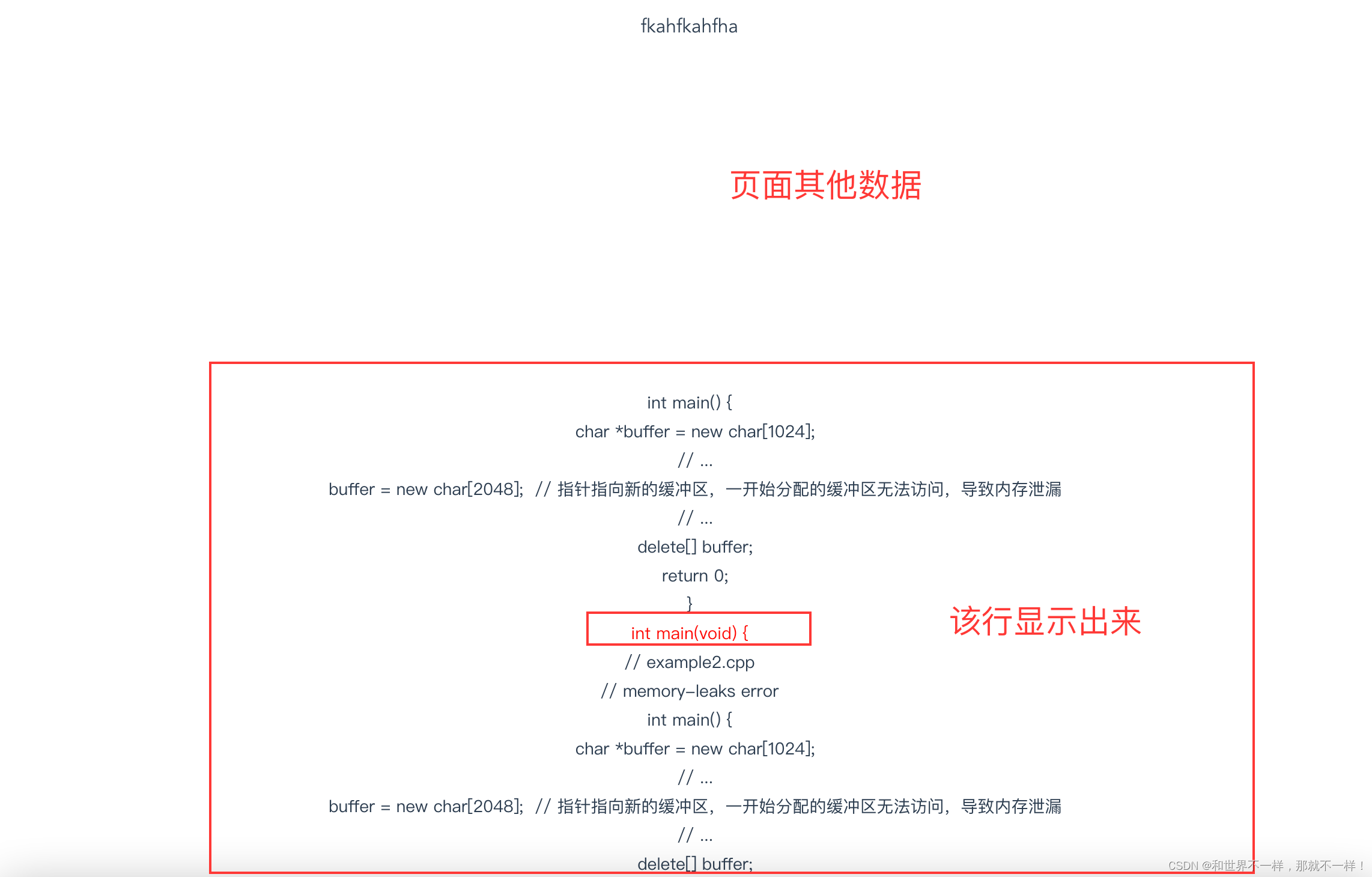目录
1.服务器端实现思路
2.服务器端代码
3.客户端代码
4.内核链表代码
5.运行格式
一、服务器端
二、客户端
6.效果
1.服务器端实现思路
-
Tcp广播服务初始化
-
等待客户端连接
-
广播发送
2.服务器端代码
#include "list.h"
#include <signal.h>
#define EXIT_MASK "exit"pthread_mutex_t mutex;
volatile int is_down = 0;void *Tcp_Pthreads_Broadcast(void *arg)
{service_inf_poi sip = (service_inf_poi)arg;// 设置线程分离if (pthread_detach(pthread_self()) != 0){perror("pthread_detach error");close(sip->ser_fd);pthread_exit((void *)(-1));}char msg[MSG_MAX_LEN] = "\0";while (!is_down){memset(msg, 0, sizeof(char) * MSG_MAX_LEN);// 保存当前已经连接的客户端的IP地址和套接字int cur_client_id = sip->cur_client_node->client_own_id;char cur_client_ip_addr[IP_ADDR_LEN] = "\0";strcpy(cur_client_ip_addr, sip->cur_client_node->client_ip_addr);// 根据套接字读取数据int read_ret = read(cur_client_id, msg, MSG_MAX_LEN);if (read_ret == -1){perror("read error...");close(sip->ser_fd);pthread_exit((void *)(-1));}else if (read_ret == 0 || strcmp(msg, EXIT_MASK) == 0){printf("%s 断开连接\n", cur_client_ip_addr);client_link pos = NULL;// 删除该客户端节点,并结束该进程list_for_each_entry(pos, &sip->client_list_head->little_pointer_head, little_pointer_head){if (pos->client_own_id == cur_client_id) // 根据套接字 号码来找{break;}}pthread_mutex_lock(&mutex); // 上锁list_del(&pos->little_pointer_head);pthread_mutex_unlock(&mutex); // 解锁printf("删除节点成功\n\n");// 判断当前是否有客户if (list_empty(&sip->client_list_head->little_pointer_head) == 1 || sip->client_list_head == NULL || &sip->client_list_head->little_pointer_head == NULL){printf("================当前无客户连接======================\n\n");printf("服务器端即将断开!!!\n\n");// 退出,并释放,结束服务器端pthread_mutex_lock(&mutex); // 上锁Tcp_Server_Broadcast_Free(sip);is_down = 1;close(sip->ser_fd);pthread_mutex_unlock(&mutex); // 解锁if (kill(getpid(), SIGKILL) == -1){perror("kill error...");pthread_exit((void *)-1);}break;}else{pos = NULL;printf("=============当前客户端列表==========================\n");list_for_each_entry(pos, &sip->client_list_head->little_pointer_head, little_pointer_head){printf("%s\n", pos->client_ip_addr);}printf("===================================================\n\n");}break; // 结束当前线程}else{printf("%s : %s\n", cur_client_ip_addr, msg);// 广播转发client_link pos = NULL;// 将前16个字节作为ip地址char new_msg[MSG_MAX_LEN] = "\0";sprintf(new_msg, "%s:【%s】", cur_client_ip_addr, msg);printf("new_msg = %s\n", new_msg);list_for_each_entry(pos, &sip->client_list_head->little_pointer_head, little_pointer_head){if (strcmp(cur_client_ip_addr, pos->client_ip_addr) != 0) // 自己不转发给自己{if (write(pos->client_own_id, new_msg, strlen(new_msg)) == -1){perror("write error...");break;}printf("转发给:%s成功!\n", pos->client_ip_addr);}}printf("\n");}}pthread_exit((void *)0);return NULL;
}void Tcp_Server_Broadcast_Free(service_inf_poi sip)
{free(sip);return;
}
// 创建新节点
client_link Create_New_Client_Node()
{client_link new_client_node = (client_link)malloc(sizeof(client_node));if (new_client_node == (client_link)NULL){perror("malloc new_big_node error");return (client_link)-1;}memset(new_client_node, 0, sizeof(client_node));INIT_LIST_HEAD(&new_client_node->little_pointer_head);return new_client_node;
}// Tcp广播服务初始化
service_inf_poi Tcp_Server_Broadcast_Init(int ser_port)
{service_inf_poi sip = (service_inf_poi)malloc(sizeof(service_inf));if (sip == (service_inf_poi)NULL){perror("malloc error...");return (service_inf_poi)-1;}memset(sip, 0, sizeof(service_inf));if ((sip->ser_fd = socket(AF_INET, SOCK_STREAM, 0)) == -1){perror("socket error...");return (service_inf_poi)-1;}// 创建客户端头结点sip->client_list_head = Create_New_Client_Node();if (sip->client_list_head == (client_link)-1){return (service_inf_poi)-1;}// 设置基本信息struct sockaddr_in ser_inf;memset(&ser_inf, 0, sizeof(ser_inf));ser_inf.sin_family = AF_INET;ser_inf.sin_port = htons(ser_port); // 将小端变成大端ser_inf.sin_addr.s_addr = htonl(INADDR_ANY);// 绑定if (bind(sip->ser_fd, (struct sockaddr *)&ser_inf, sizeof(ser_inf)) == -1){perror("bind error...");return (service_inf_poi)-1;}// 监听if (listen(sip->ser_fd, CLIENT_MAX_CONNECT_NUM / 4) == -1) // 最大等待队列是CLIENT_MAX_CONNECT_NUM / 4个{perror("listen error...");return (service_inf_poi)-1;}// 初始化互斥锁if (pthread_mutex_init(&mutex, NULL)){perror("pthread_mutex error...\n");return (service_inf_poi)-1;}return sip;
}// 等待客户端连接
int Waiting_For_Connnect(service_inf_poi sip)
{struct sockaddr_in client_inf;int len = sizeof(client_inf);while (1){memset(&client_inf, 0, len);int new_client_fd = accept(sip->ser_fd, (struct sockaddr *)&client_inf, &len);if (new_client_fd == -1){perror("accept error...");return -1;}printf("%s已经连接服务器\n", inet_ntoa(client_inf.sin_addr));// 创建新节点client_link new_client_node = Create_New_Client_Node();if (new_client_node == (client_link)-1){return -1;}// 将ip和新的套接字 赋值new_client_node->client_own_id = new_client_fd;strcpy(new_client_node->client_ip_addr, inet_ntoa(client_inf.sin_addr));sip->cur_client_node = new_client_node; // 保存当前的结点// 将新节点插入到客户端列表中list_add_tail(&new_client_node->little_pointer_head, &sip->client_list_head->little_pointer_head);printf("添加头结点成功!\n\n");printf("======================当前客户端列表=======================\n");client_link pos;list_for_each_entry(pos, &sip->client_list_head->little_pointer_head, little_pointer_head){printf("%s\n", pos->client_ip_addr);}printf("==========================================================\n\n");// 创建线程进行广播发送pthread_t pid;if (pthread_create(&pid, NULL, Tcp_Pthreads_Broadcast, sip) != 0){perror("pthread_create error...");return -1;}}return 0;
}int main(int argc, char *argv[])
{if (argc != 2)return -1;service_inf_poi sip = Tcp_Server_Broadcast_Init(atoi(argv[1]));if (sip == (service_inf_poi)-1){printf("Tcp服务器初始化失败!\n");return -1;}else{printf("Tcp服务器初始化成功!正在等待接受数据.......\n");}Waiting_For_Connnect(sip);return 0;
}3.客户端代码
#include <stdio.h>
#include <stdlib.h>
#include <string.h>
#include <sys/socket.h>
#include <sys/stat.h>
#include <sys/types.h>
#include <unistd.h>
#include <fcntl.h>
#include <pthread.h>
#include <arpa/inet.h>
#include <netinet/in.h>
#include <signal.h>#define IP_ADDR_LEN 16
#define MSG_MAX_LEN 256
#define CLIENT_MAX_CONNECT_NUM 100
#define EXIT_MASK "exit"volatile int is_over = 0;int Client_Init(char *server_ip_addr, int server_prot_num);
int Client_Running(int cli_fd);
void *Send_Msg(void *arg);
void *Rec_Msg(void *arg);void *Send_Msg(void *arg)
{int *client_fd = (int *)(arg);int cli_fd = *(client_fd);printf("Send_msg = %d\n", cli_fd);if (pthread_detach(pthread_self()) != 0){perror("pthread_detach error");close(cli_fd);free(client_fd);pthread_exit((void *)(-1));}char msg[MSG_MAX_LEN] = "\0";while (!is_over){memset(msg, 0, MSG_MAX_LEN);printf("请输入要发送的数据:");scanf("%s", msg);if (write(cli_fd, msg, strlen(msg)) == -1){perror("Send_Msg:write error...");close(cli_fd);free(client_fd);pthread_exit((void *)-1);}if (strcmp(EXIT_MASK, msg) == 0){printf("我要断了\n");is_over = 1;if (kill(getpid(), SIGKILL) == -1){perror("kill error...");close(cli_fd);free(client_fd);pthread_exit((void *)-1);}break;}}close(cli_fd);free(client_fd);pthread_exit((void *)0);return NULL;
}
void *Rec_Msg(void *arg)
{int cli_fd = *((int *)arg);if (pthread_detach(pthread_self()) != 0){perror("pthread_detach error");close(cli_fd);pthread_exit((void *)(-1));}char msg[MSG_MAX_LEN] = "\0";while (!is_over){memset(msg, 0, MSG_MAX_LEN);int read_ret = read(cli_fd, msg, MSG_MAX_LEN);if (read_ret == -1){perror("write error...");close(cli_fd);pthread_exit((void *)-1);}else if (read_ret != 0){printf("\n%s\n", msg);}}close(cli_fd);pthread_exit((void *)0);return NULL;
}int Client_Init(char *server_ip_addr, int server_prot_num)
{// 创建套接字int cli_fd = socket(AF_INET, SOCK_STREAM, 0);if (cli_fd == -1){perror("socket error...");return -1;}else{printf("socket success %d\n", cli_fd);}struct sockaddr_in cli_inf;memset(&cli_inf, 0, sizeof(cli_inf));cli_inf.sin_family = AF_INET;cli_inf.sin_addr.s_addr = inet_addr(server_ip_addr);cli_inf.sin_port = htons(server_prot_num);// 连接if (connect(cli_fd, (struct sockaddr *)&cli_inf, sizeof(cli_inf)) == -1){perror("connect error...");close(cli_fd);return -1;}else{printf("连接成功!\n");}return cli_fd;
}int Client_Running(int cli_fd)
{int *client_fd = (int *)malloc(sizeof(int));*client_fd = cli_fd;pthread_t pid_send, pid_rec;if (pthread_create(&pid_send, NULL, Send_Msg, client_fd) != 0){perror("pthread_create error...");return -1;}if (pthread_create(&pid_rec, NULL, Rec_Msg, client_fd) != 0){perror("pthread_create error...");return -1;}pause();return 0;
}// a.out ip port
int main(int argc, char *argv[])
{if (argc != 3){printf("输入的参数不对!\n");return -1;}int cli_fd = Client_Init(argv[1], atoi(argv[2]));printf("Client_Init success %d\n", cli_fd);if (cli_fd == -1){printf("Client Init error\n");return -1;}if (Client_Running(cli_fd) == -1){printf("Client_Running error\n");return -1;}return 0;
}4.内核链表代码
#ifndef _LINUX_LIST_H
#define _LINUX_LIST_H#include <stdio.h>
#include <stdbool.h>
#include <unistd.h>
#include <string.h>
#include <stdlib.h>
#include <sys/socket.h>
#include <sys/stat.h>
#include <sys/types.h>
#include <fcntl.h>
#include <pthread.h>
#include <arpa/inet.h>
#include <netinet/in.h>#define IP_ADDR_LEN 16
#define MSG_MAX_LEN 256
#define CLIENT_MAX_CONNECT_NUM 100/** Simple doubly linked list implementation.** Some of the internal functions ("__xxx") are useful when* manipulating whole lists rather than single entries, as* sometimes we already know the next/prev entries and we can* generate better code by using them directly rather than* using the generic single-entry routines.*/#define LIST_HEAD_INIT(name) \{ \&(name), &(name) \}#define LIST_HEAD(name) \struct list_head name = LIST_HEAD_INIT(name)struct list_head
{struct list_head *next, *prev;
};typedef struct big_list_node
{int client_own_id; // 客户端的套接字char client_ip_addr[IP_ADDR_LEN]; // 客户端的ip地址struct list_head little_pointer_head;
} client_node, *client_link;typedef struct tcp_service_inf
{int ser_fd; // 服务端的套接字client_link cur_client_node; // 存放当前客户端的结点client_link client_list_head; // 存放客户端链表的头结点
} service_inf, *service_inf_poi;client_link Create_New_Client_Node();
service_inf_poi Tcp_Server_Broadcast_Init(int ser_port);
client_link Create_Client_Node();
int Waiting_For_Connnect(service_inf_poi sip);
void Tcp_Server_Broadcast_Free(service_inf_poi sip);
void *Tcp_Pthreads_Broadcast(void *arg);static inline void INIT_LIST_HEAD(struct list_head *list)
{list->next = list; // 游离节点指向小头list->prev = list;
}#ifdef CONFIG_DEBUG_LIST
extern bool __list_add_valid(struct list_head *new,struct list_head *prev,struct list_head *next);
extern bool __list_del_entry_valid(struct list_head *entry);
#else
static inline bool __list_add_valid(struct list_head *new,struct list_head *prev,struct list_head *next)
{return true;
}
static inline bool __list_del_entry_valid(struct list_head *entry)
{return true;
}
#endif/** Insert a new entry between two known consecutive entries.** This is only for internal list manipulation where we know* the prev/next entries already!*/
static inline void __list_add(struct list_head *new,struct list_head *prev,struct list_head *next)
{if (!__list_add_valid(new, prev, next))return;next->prev = new;new->next = next;new->prev = prev;prev->next = new;
}/*** list_add - add a new entry* @new: new entry to be added* @head: list head to add it after** Insert a new entry after the specified head.* This is good for implementing stacks.*/
static inline void list_add(struct list_head *new, struct list_head *head)
{__list_add(new, head, head->next);
}/*** list_add_tail - add a new entry* @new: new entry to be added* @head: list head to add it before** Insert a new entry before the specified head.* This is useful for implementing queues.*/
static inline void list_add_tail(struct list_head *new, struct list_head *head)
{__list_add(new, head->prev, head);
}/** Delete a list entry by making the prev/next entries* point to each other.** This is only for internal list manipulation where we know* the prev/next entries already!*/
static inline void __list_del(struct list_head *prev, struct list_head *next)
{next->prev = prev;prev->next = next;
}/*** list_del - deletes entry from list.* @entry: the element to delete from the list.* Note: list_empty() on entry does not return true after this, the entry is* in an undefined state.*/
static inline void __list_del_entry(struct list_head *entry)
{if (!__list_del_entry_valid(entry))return;__list_del(entry->prev, entry->next);
}static inline void list_del(struct list_head *entry)
{__list_del_entry(entry);entry->next = NULL;entry->prev = NULL;
}/*** list_replace - replace old entry by new one* @old : the element to be replaced* @new : the new element to insert** If @old was empty, it will be overwritten.*/
static inline void list_replace(struct list_head *old,struct list_head *new)
{new->next = old->next;new->next->prev = new;new->prev = old->prev;new->prev->next = new;
}static inline void list_replace_init(struct list_head *old,struct list_head *new)
{list_replace(old, new);INIT_LIST_HEAD(old);
}/*** list_del_init - deletes entry from list and reinitialize it.* @entry: the element to delete from the list.*/
static inline void list_del_init(struct list_head *entry)
{__list_del_entry(entry);INIT_LIST_HEAD(entry);
}/*** list_move - delete from one list and add as another's head* @list: the entry to move* @head: the head that will precede our entry*/
static inline void list_move(struct list_head *list, struct list_head *head)
{__list_del_entry(list);list_add(list, head);
}/*** list_move_tail - delete from one list and add as another's tail* @list: the entry to move* @head: the head that will follow our entry*/
static inline void list_move_tail(struct list_head *list,struct list_head *head)
{__list_del_entry(list);list_add_tail(list, head);
}/*** list_is_last - tests whether @list is the last entry in list @head* @list: the entry to test* @head: the head of the list*/
static inline int list_is_last(const struct list_head *list,const struct list_head *head)
{return list->next == head;
}/*** list_empty - tests whether a list is empty* @head: the list to test.*/
static inline int list_empty(const struct list_head *head)
{return head->next == head;
}/*** list_empty_careful - tests whether a list is empty and not being modified* @head: the list to test** Description:* tests whether a list is empty _and_ checks that no other CPU might be* in the process of modifying either member (next or prev)** NOTE: using list_empty_careful() without synchronization* can only be safe if the only activity that can happen* to the list entry is list_del_init(). Eg. it cannot be used* if another CPU could re-list_add() it.*/
static inline int list_empty_careful(const struct list_head *head)
{struct list_head *next = head->next;return (next == head) && (next == head->prev);
}/*** list_rotate_left - rotate the list to the left* @head: the head of the list*/
static inline void list_rotate_left(struct list_head *head)
{struct list_head *first;if (!list_empty(head)){first = head->next;list_move_tail(first, head);}
}/*** list_is_singular - tests whether a list has just one entry.* @head: the list to test.*/
static inline int list_is_singular(const struct list_head *head)
{return !list_empty(head) && (head->next == head->prev);
}static inline void __list_cut_position(struct list_head *list,struct list_head *head, struct list_head *entry)
{struct list_head *new_first = entry->next;list->next = head->next;list->next->prev = list;list->prev = entry;entry->next = list;head->next = new_first;new_first->prev = head;
}/*** list_cut_position - cut a list into two* @list: a new list to add all removed entries* @head: a list with entries* @entry: an entry within head, could be the head itself* and if so we won't cut the list** This helper moves the initial part of @head, up to and* including @entry, from @head to @list. You should* pass on @entry an element you know is on @head. @list* should be an empty list or a list you do not care about* losing its data.**/
static inline void list_cut_position(struct list_head *list,struct list_head *head, struct list_head *entry)
{if (list_empty(head))return;if (list_is_singular(head) &&(head->next != entry && head != entry))return;if (entry == head)INIT_LIST_HEAD(list);else__list_cut_position(list, head, entry);
}static inline void __list_splice(const struct list_head *list,struct list_head *prev,struct list_head *next)
{struct list_head *first = list->next;struct list_head *last = list->prev;first->prev = prev;prev->next = first;last->next = next;next->prev = last;
}/*** list_splice - join two lists, this is designed for stacks* @list: the new list to add.* @head: the place to add it in the first list.*/
static inline void list_splice(const struct list_head *list,struct list_head *head)
{if (!list_empty(list))__list_splice(list, head, head->next);
}/*** list_splice_tail - join two lists, each list being a queue* @list: the new list to add.* @head: the place to add it in the first list.*/
static inline void list_splice_tail(struct list_head *list,struct list_head *head)
{if (!list_empty(list))__list_splice(list, head->prev, head);
}/*** list_splice_init - join two lists and reinitialise the emptied list.* @list: the new list to add.* @head: the place to add it in the first list.** The list at @list is reinitialised*/
static inline void list_splice_init(struct list_head *list,struct list_head *head)
{if (!list_empty(list)){__list_splice(list, head, head->next);INIT_LIST_HEAD(list);}
}/*** list_splice_tail_init - join two lists and reinitialise the emptied list* @list: the new list to add.* @head: the place to add it in the first list.** Each of the lists is a queue.* The list at @list is reinitialised*/
static inline void list_splice_tail_init(struct list_head *list,struct list_head *head)
{if (!list_empty(list)){__list_splice(list, head->prev, head);INIT_LIST_HEAD(list);}
}// 在stddef.h中
#define offsetof(TYPE, MEMBER) ((size_t) & ((TYPE *)0)->MEMBER)
// 在kernel.h中
#define container_of(ptr, type, member) ({ \const typeof( ((type *)0)->member ) *__mptr = (ptr); \(type *)( (char *)__mptr - offsetof(type,member) ); })/*** list_entry - get the struct for this entry* @ptr: the &struct list_head pointer.* @type: the type of the struct this is embedded in.* @member: the name of the list_head within the struct.*/
#define list_entry(ptr, type, member) \container_of(ptr, type, member)/*** list_first_entry - get the first element from a list* @ptr: the list head to take the element from.* @type: the type of the struct this is embedded in.* @member: the name of the list_head within the struct.** Note, that list is expected to be not empty.*/
#define list_first_entry(ptr, type, member) \list_entry((ptr)->next, type, member)/*** list_last_entry - get the last element from a list* @ptr: the list head to take the element from.* @type: the type of the struct this is embedded in.* @member: the name of the list_head within the struct.** Note, that list is expected to be not empty.*/
#define list_last_entry(ptr, type, member) \list_entry((ptr)->prev, type, member)/*** list_first_entry_or_null - get the first element from a list* @ptr: the list head to take the element from.* @type: the type of the struct this is embedded in.* @member: the name of the list_head within the struct.** Note that if the list is empty, it returns NULL.*/
#define list_first_entry_or_null(ptr, type, member) ({ \struct list_head *head__ = (ptr); \struct list_head *pos__ = head__->next; \pos__ != head__ ? list_entry(pos__, type, member) : NULL; \
})/*** list_next_entry - get the next element in list* @pos: the type * to cursor* @member: the name of the list_head within the struct.*/
#define list_next_entry(pos, member) \list_entry((pos)->member.next, typeof(*(pos)), member)/*** list_prev_entry - get the prev element in list* @pos: the type * to cursor* @member: the name of the list_head within the struct.*/
#define list_prev_entry(pos, member) \list_entry((pos)->member.prev, typeof(*(pos)), member)/*** list_for_each - iterate over a list* @pos: the &struct list_head to use as a loop cursor.* @head: the head for your list.*/
#define list_for_each(pos, head) \for (pos = (head)->next; pos != (head); pos = pos->next)/*** list_for_each_prev - iterate over a list backwards* @pos: the &struct list_head to use as a loop cursor.* @head: the head for your list.*/
#define list_for_each_prev(pos, head) \for (pos = (head)->prev; pos != (head); pos = pos->prev)/*** list_for_each_safe - iterate over a list safe against removal of list entry* @pos: the &struct list_head to use as a loop cursor.* @n: another &struct list_head to use as temporary storage* @head: the head for your list.*/
#define list_for_each_safe(pos, n, head) \for (pos = (head)->next, n = pos->next; pos != (head); \pos = n, n = pos->next)/*** list_for_each_prev_safe - iterate over a list backwards safe against removal of list entry* @pos: the &struct list_head to use as a loop cursor.* @n: another &struct list_head to use as temporary storage* @head: the head for your list.*/
#define list_for_each_prev_safe(pos, n, head) \for (pos = (head)->prev, n = pos->prev; \pos != (head); \pos = n, n = pos->prev)/*** list_for_each_entry - iterate over list of given type* @pos: the type * to use as a loop cursor.* @head: the head for your list.* @member: the name of the list_head within the struct.*/
#define list_for_each_entry(pos, head, member) \for (pos = list_first_entry(head, typeof(*pos), member); \&pos->member != (head); \pos = list_next_entry(pos, member))/*** list_for_each_entry_reverse - iterate backwards over list of given type.* @pos: the type * to use as a loop cursor.* @head: the head for your list.* @member: the name of the list_head within the struct.*/
#define list_for_each_entry_reverse(pos, head, member) \for (pos = list_last_entry(head, typeof(*pos), member); \&pos->member != (head); \pos = list_prev_entry(pos, member))/*** list_prepare_entry - prepare a pos entry for use in list_for_each_entry_continue()* @pos: the type * to use as a start point* @head: the head of the list* @member: the name of the list_head within the struct.** Prepares a pos entry for use as a start point in list_for_each_entry_continue().*/
#define list_prepare_entry(pos, head, member) \((pos) ?: list_entry(head, typeof(*pos), member))/*** list_for_each_entry_continue - continue iteration over list of given type* @pos: the type * to use as a loop cursor.* @head: the head for your list.* @member: the name of the list_head within the struct.** Continue to iterate over list of given type, continuing after* the current position.*/
#define list_for_each_entry_continue(pos, head, member) \for (pos = list_next_entry(pos, member); \&pos->member != (head); \pos = list_next_entry(pos, member))/*** list_for_each_entry_continue_reverse - iterate backwards from the given point* @pos: the type * to use as a loop cursor.* @head: the head for your list.* @member: the name of the list_head within the struct.** Start to iterate over list of given type backwards, continuing after* the current position.*/
#define list_for_each_entry_continue_reverse(pos, head, member) \for (pos = list_prev_entry(pos, member); \&pos->member != (head); \pos = list_prev_entry(pos, member))/*** list_for_each_entry_from - iterate over list of given type from the current point* @pos: the type * to use as a loop cursor.* @head: the head for your list.* @member: the name of the list_head within the struct.** Iterate over list of given type, continuing from current position.*/
#define list_for_each_entry_from(pos, head, member) \for (; &pos->member != (head); \pos = list_next_entry(pos, member))/*** list_for_each_entry_safe - iterate over list of given type safe against removal of list entry* @pos: the type * to use as a loop cursor.* @n: another type * to use as temporary storage* @head: the head for your list.* @member: the name of the list_head within the struct.*/
#define list_for_each_entry_safe(pos, n, head, member) \for (pos = list_first_entry(head, typeof(*pos), member), \n = list_next_entry(pos, member); \&pos->member != (head); \pos = n, n = list_next_entry(n, member))/*** list_for_each_entry_safe_continue - continue list iteration safe against removal* @pos: the type * to use as a loop cursor.* @n: another type * to use as temporary storage* @head: the head for your list.* @member: the name of the list_head within the struct.** Iterate over list of given type, continuing after current point,* safe against removal of list entry.*/
#define list_for_each_entry_safe_continue(pos, n, head, member) \for (pos = list_next_entry(pos, member), \n = list_next_entry(pos, member); \&pos->member != (head); \pos = n, n = list_next_entry(n, member))/*** list_for_each_entry_safe_from - iterate over list from current point safe against removal* @pos: the type * to use as a loop cursor.* @n: another type * to use as temporary storage* @head: the head for your list.* @member: the name of the list_head within the struct.** Iterate over list of given type from current point, safe against* removal of list entry.*/
#define list_for_each_entry_safe_from(pos, n, head, member) \for (n = list_next_entry(pos, member); \&pos->member != (head); \pos = n, n = list_next_entry(n, member))/*** list_for_each_entry_safe_reverse - iterate backwards over list safe against removal* @pos: the type * to use as a loop cursor.* @n: another type * to use as temporary storage* @head: the head for your list.* @member: the name of the list_head within the struct.** Iterate backwards over list of given type, safe against removal* of list entry.*/
#define list_for_each_entry_safe_reverse(pos, n, head, member) \for (pos = list_last_entry(head, typeof(*pos), member), \n = list_prev_entry(pos, member); \&pos->member != (head); \pos = n, n = list_prev_entry(n, member))/*** list_safe_reset_next - reset a stale list_for_each_entry_safe loop* @pos: the loop cursor used in the list_for_each_entry_safe loop* @n: temporary storage used in list_for_each_entry_safe* @member: the name of the list_head within the struct.** list_safe_reset_next is not safe to use in general if the list may be* modified concurrently (eg. the lock is dropped in the loop body). An* exception to this is if the cursor element (pos) is pinned in the list,* and list_safe_reset_next is called after re-taking the lock and before* completing the current iteration of the loop body.*/
#define list_safe_reset_next(pos, n, member) \n = list_next_entry(pos, member)/** Double linked lists with a single pointer list head.* Mostly useful for hash tables where the two pointer list head is* too wasteful.* You lose the ability to access the tail in O(1).*/#endif
5.运行格式
一、服务器端
gcc xx.c -pthrad -o s
./s 8888
其中8888是端口号
二、客户端
gcc xxx.c -pthrad -o c
./s 192.xxx.xxx.xxx 8888
第二个参数是:服务器端的ip地址
第三个参数是:端口号
(注意:如果是同一台主机,则端口号不能相同)
6.效果
连接效果

断开效果


